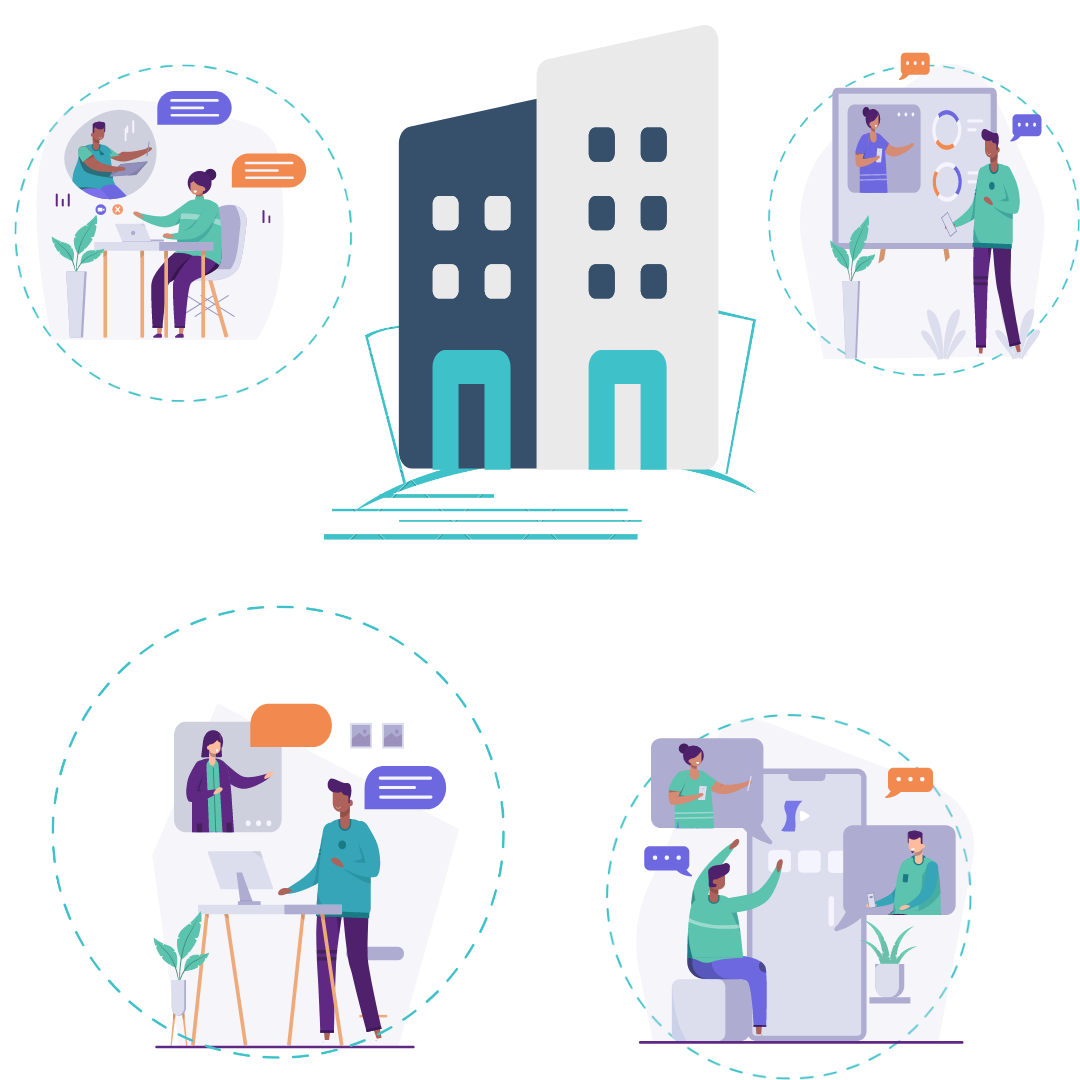Remote Driven Companies
Subscribe to learn about new product features, the latest in technology, solutions, and updates..

The future of Remote Driven Companies
In this Covid-19 era, we see the concept of working from home taking off, which forced companies to unite offices remotely and make employees telecommute. It was tough for employees to move into the flawless remote work culture initially, but now the home desk is fitted as a permanent office cubicle. As a result, the list of remote-based companies increases while 95% of companies are happy with remote Work Culture.
Also, it was challenging for remote Driven Companies to figure out a comprehensive tool for communication and other remote culture essentials. Adapting to the new work culture,
corporate giants like Google, Amazon, and Microsoft proposed they work
partially (two or three days a week) from home after COVID recovery. All these top companies provided Remote jobs and showed interest to hire Remote Employees.
If you are searching for top remote job companies, you are on the right page. Here are a few well-known companies that have ultimately chosen to shift into 100% remote life, even post-COVID-19. This article will see companies that originated as Work from home companies before the pandemic. Companies that shifted to 100% remote don't want their employees to return to the office after the pandemic ends.
GitLab
We all know GitLab is a web-based collaboration lifecycle tool that affords a Git repository, constant integration, and deployment pipeline innovations. But, we don't know, GitLab Headquarters at San Francisco work with just one person, none other than the CEO Sid Sijbrandij, and the other 160+ people work from 160+ locations from 37 countries.
In an interview, Sid said, "Our employees work from the location they prefer; if they want to, we will pay for office space near their location. Our product should be exceptional, not all the rest of the structure shouldn't be; thus, we care about the results, not where you work from."
GitLab employees have a zoom video call four times a week, believing in a pretty novel work culture where they talk about their personal lives for about half an hour. According to GitLab, the location doesn't matter; what they want is to gain the purpose that everyone can commit to open source projects and software and successfully work with Work from home employees.
Quora
Quora also joined the companies with remote work culture. American question-and-answer website founder Adam D'Angelo on June 25, announced that they're planning to go remote with a small number of limitations (for instance, people whose jobs explicitly depend on their physical appearance).
Also, in one of the Quora blogs, he said, "I will visit the office no more than once a month. Our leadership teams won’t be settled in the office. All meetings will expect the remote working employees to be on their own camera/video tile."
The extra factor is the rise of two-income families. Single-income families can optimize to place close to wherever the best shot is for the one-earner and relocate whenever new possibilities come up. When two assets are in a house, relocating for a new job opening enhances a complex coordination problem. And the home-based jobs are easier to thrive and maintain work-life balance.
In particular, Quora is looking for a team of multiple remote developers worldwide to attain their purpose "share and grow the world's knowledge."
Image sharing and social media service Pinterest was so excited to change its workforce to remote-first that it was prepared to pay a whopping $89.5 million fee to drop out a new office lease in San Francisco. So, Pinterest also joined the list of home-based companies.
The CFO Todd Morgenfeld told CNN, "As we dissect how our work will shift in a post-COVID world, we are exactly rethinking where future employees could be working from. A more categorized workforce will permit us to easily hire employees on Remote from a wider area of education and experiences.”
Working from home has enriched more inclusiveness especially for women who usually have to divide themselves amidst work and caregiving responsibilities.
They believe the distributed workforce and remote-based IT companies will bring lots of ideas and change, which helps the tech companies innovate indelibly.
Shopify
In an interview, Tobi Lutke, chief executive officer of the Canadian e-commerce giant, said that the company intends to close its offices for the rest of the year as it redesigns its area for a "digital by default" mindset resolves to a remote work environment.
Shopify is assured that even after COVID office centricity is over. "COVID is confronting us all to strive together in new directions. " Lutke wrote, we choose to jump in the driver's seat rather than being passengers to the turns ahead," Lutke wrote. As a result, the global workforce and WFH employees will increase shortly.
AppExert
AppExert is the paradigm for remote start-ups and other remote-based job companies coping during this pandemic. From its inception, our company has been running a productive remote team.
When connecting with other remote organizations, we have a pretty novel work culture, and our primary concern is to maintain employees' happiness and comfort. As a result, we have changed the dynamics of easily hiring employees on Remote.
Our objective is to enable tech companies to reach an on-demand, high-performing team of remote developers. Also, we encourage SMEs and start-ups to build products faster, better-being work from home. So, if you are a company looking to hire employees who working in remote, AppExert is your best bet.
"Work from anywhere and at any time with the comfort of AppExert"


